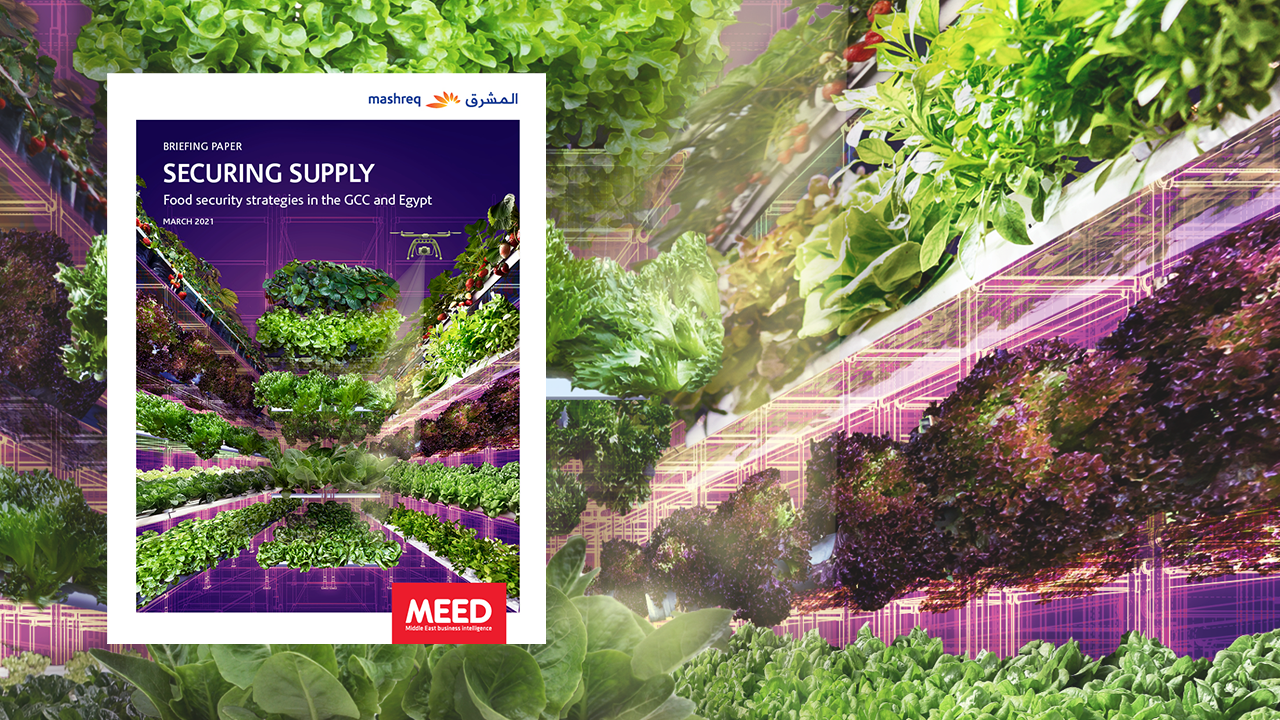BRIEFING PAPER: Securing supply

National targets and government strategies are driving forces to improve food security in the GCC and Egypt
Food security has long been an important issue in this region.
While officially classified by the United Nations as ‘food secure’, its arid climate and widespread desert conditions, means that the GCC is heavily dependent on food imports to meet local demand. In the UAE for instance, nearly 90 per cent of demand is met through imports.
The region’s dependence on imports is a significant food security risk to the region. Made riskier by impact of regional geopolitical instability on import pricing and routes.
The Covid-19 pandemic has further exposed the vulnerabilities of global food supply chain, making it clear that any long-term disruptions to global food networks could have catastrophic consequences in maintaining optimum supply in the face of growing demand.
The Food and Agriculture Organisation of the United Nations (FAO) reports that global food prices have reached their highest levels since 2014 as a result of the pandemic.
Investing in food security
Even before Covid-19, the region’s food industry was undergoing radical transformation as governments implemented new strategies in response to population growth and climate change, while producers were reacting to rapidly changing consumer behaviour, and the need for greater efficiency and sustainability.
To counter effects of the region’s arid climate, the UAE, along with other governments in the region, has invested in cutting-edge food production and distribution techniques such as hydroponics and vertical farming, smart irrigation and aquaponics. And it is clear that advanced technologies such as robotics and ai offer exciting new opportunities for the food F&B sector.
These initiatives have taken on greater meaning in the wake of the Covid-19 pandemic, which has highlighted the need for a local, self-sufficient and robust food supply chain.
Building food security
 Countries that have steadily worked towards strengthening their internal production capabilities and logistics networks over recent years find themselves much better placed to ride out the crisis. This is evidenced by the relative ease with which GCC governments were able to manage food demand during the pandemic.
Countries that have steadily worked towards strengthening their internal production capabilities and logistics networks over recent years find themselves much better placed to ride out the crisis. This is evidenced by the relative ease with which GCC governments were able to manage food demand during the pandemic.
Securing Supply, the latest briefing paper produced by MEED in partnership with Dubai-based Mashreq Bank, discusses the food security strategies underway in the GCC and Egypt, including the shifting focus on self-sufficiency in sectors such as fisheries, dairy and poultry; enhancing in-country reserves; and growing investments in agricultural technology.
Download here
Disclaimer: The information provided in this report is solely for educational purposes and does not indicate the Bank’s business undertakings. Mashreq Bank complies with all international sanctions and regulations as instated by the jurisdictions it operates within.


